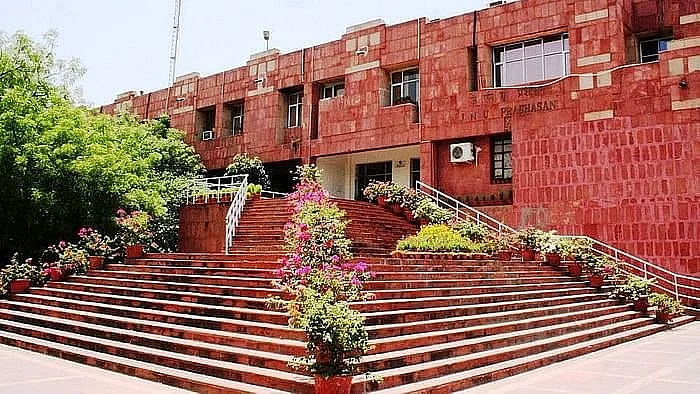
'Girls Should Know': JNU Removes Controversial Line in ICC Notice on Harassment
The ICC notice stated that the session was needed so that girls can draw a 'tangible line’ to avoid harassment.

advertisement
The Jawaharlal Nehru University (JNU) has removed the controversial line from the Internal Complaints Committee's (ICC) circular on a counselling session on sexual harassment, where they said that girls should know how to 'draw a tangible line between them and their male friends'.
The modification in language comes after widespread backlash from students who said that the sentence resorted to 'victim blaming', and demanded the removal of the same.
Made public earlier this week, the circular said that the ICC would hold monthly counselling sessions to make students aware of the ‘do’s and don’ts’ of sexual harassment.'
'ICC Does Not Understand No Means No': AISA
A day earlier, JNU's All India Students Association Secretary Madhurima Kundu had called the notice ‘regressive’, stating that the circular put the onus on women.
"It is very surprising that ICC does not understand that no means no, and that rape, sexual harassment does not happen because of women. They do not mention anything about those who have different sexual orientation," she added.
“This particular point in the notice was triggering because it puts the onus on the women for harassment. This comes at a time when complaints of sexual harassment is rampant,” Dhathri, MA Sociology student, told The Quint.
'Both Girls and Boys Must Know...': ICC Clarifies
After the controversy, ICC Presiding Officer Punam Kumari told The Indian Express that it is "important for both boys and girls to know where the line has to be drawn".
She told the newspaper: “It is important for both boys and girls to know where the line has to be drawn… Girls also need to say it before the matter goes out of hand if they don’t like (being touched or hugged). These things have to be conveyed clearly. Otherwise how will the person know what you want? These are small things which we will tell them about along with all the rules and regulations of ICC.”
The JNU ICC is constitutes a presiding officer, two faculty members, an officer representative, a staff representative and an external member.
Students Seek Reinstatement of GSCASH
Geeta Kumari, a PhD student in JNU said, “the onus should be on the harasser. This statement only gives a space to people who were earlier scared."
She demanded reinstatement of the Gender Sensitisation Committee Against Sexual Harassment (GSCASH), which was dismantled three years ago.
GSCASH, an internal mechanism evolved by the JNU community to deal with harassment complaints, came into effect in 1999, two years after the Vishaka verdict in 1997.
Members of the ICC did not respond to The Quint's queries regarding the matter.
(At The Quint, we question everything. Play an active role in shaping our journalism by becoming a member today.)
- Access to all paywalled content on site
- Ad-free experience across The Quint
- Early previews of our Special Projects
Published: 29 Dec 2021,06:01 PM IST